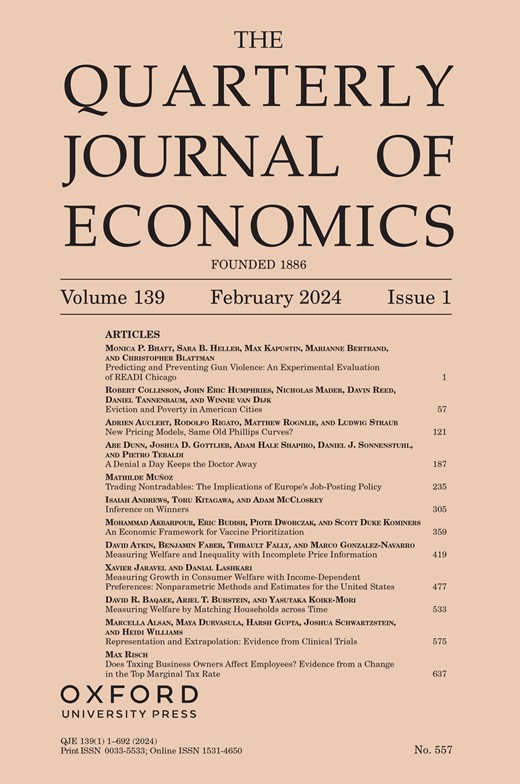财务决策的检索语境理论
IF 12.7
1区 经济学
Q1 ECONOMICS
引用次数: 0
摘要
对人类记忆的研究表明,一个事件的特征会唤起对先前相关情境状态的记忆,而这些记忆又会与当前事件的特征相关联。这种检索上下文机制允许遥远的过去影响现在,即使代理逐渐更新他们对环境的信念。我们运用从人类记忆文献中提取的检索语境理论来解释金融经济学文献中的三种证据:早期生活经历在塑造投资选择中的作用、金融危机的发生以及恐惧对资产配置的影响。这些应用表明,根据人类记忆原则所支配的信念,对新古典理性预期进行了重塑。本文章由计算机程序翻译,如有差异,请以英文原文为准。
A Retrieved-Context Theory of Financial Decisions
Studies of human memory indicate that features of an event evoke memories of prior associated contextual states, which in turn become associated with the current event’s features. This retrieved-context mechanism allows the remote past to influence the present, even as agents gradually update their beliefs about their environment. We apply a version of retrieved-context theory, drawn from the literature on human memory, to explain three types of evidence in the financial economics literature: the role of early-life experience in shaping investment choices, occurrence of financial crises, and the impact of fear on asset allocation. These applications suggest a recasting of neoclassical rational expectations in terms of beliefs as governed by principles of human memory.
求助全文
通过发布文献求助,成功后即可免费获取论文全文。
去求助
来源期刊

Quarterly Journal of Economics
ECONOMICS-
CiteScore
24.20
自引率
2.20%
发文量
42
期刊介绍:
The Quarterly Journal of Economics stands as the oldest professional journal of economics in the English language. Published under the editorial guidance of Harvard University's Department of Economics, it comprehensively covers all aspects of the field. Esteemed by professional and academic economists as well as students worldwide, QJE holds unparalleled value in the economic discourse.
 求助内容:
求助内容: 应助结果提醒方式:
应助结果提醒方式:


